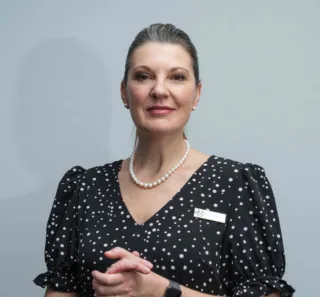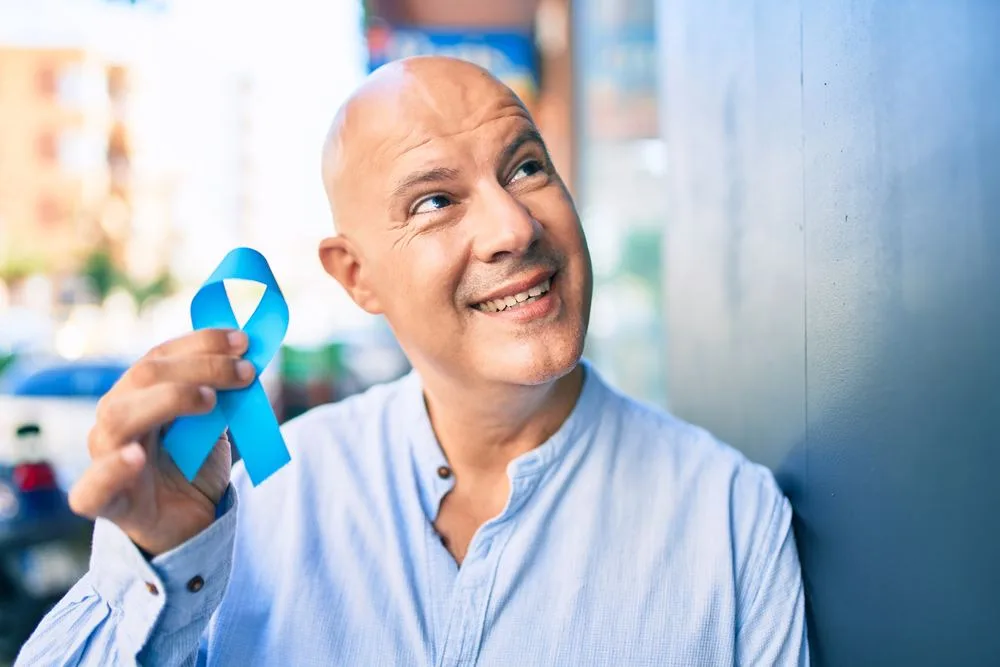It’s human nature to avoid uncomfortable subjects until we are personally affected. I would like to challenge you to put yourself in the shoes of the many thousands of people for whom a cancer diagnosis has become a reality. Millions of families, friends, and colleagues whose lives have also been shaped by the silent threat of cancer. Cancer can impact anyone. By Dr. Cindy Aitton, head of Netcare’s Cancer Care Division, South Africa.
Given the high and rising incidence of cancers – one in seven men and one in eight women – it is a painful yet almost inevitable reality that cancer will strike close to home for far too many of us at some point in our lives. Empower yourself with knowledge about cancer prevention and screening.
Understand that there is more hope and less cause for fear than ever before
More people need to realize that cancer is not a death sentence. That there is more hope and less cause for fear than ever before.
What we have most to fear, is the consequence of fear itself.
Some people with cancer have shared that one of the most difficult aspects of their cancer diagnosis was the change in how their circle looked at them and treated them. Let’s address this stigma by amplifying awareness that there is life after a cancer diagnosis, and normalizing routine screenings to ensure earlier detection.
There are so many types of cancer, each with its own set of specialized treatment options depending on many factors. To compare different people’s experiences of cancer is not so much like comparing apples with oranges, as it is like trying to compare apples with the Nelson Mandela Bridge – it utterly defies comparison.
Our approach emphasizes person-centered cancer care, supported by multidisciplinary healthcare teams focussed on the needs of the individual. We believe the patient remains the main decision-maker in partnership with the doctors. No one walks alone on this journey.
Cancer therapies require a multidisciplinary approach
Person-centered cancer care includes access to specialized multidisciplinary treatment units, along with a nationwide referral network that ensures the delivery of optimal and safe care for specific cancers. Equally important to the medical aspects of cancer care are the psycho-social implications of a cancer diagnosis.
Seek the best medical facilities that offer a variety of specialized units. Facilities like ours include psychologists and social workers as part of a multidisciplinary team to help navigate treatment holistically.
A typical example within the Netcare context is the renowned Netcare Breast Care Centre of Excellence, which is under the leadership of Professor Carol-Ann Benn.
The centre was recently reaccredited by the American College of Surgeons’ NAPBC which is one of only three facilities outside the US to be recognised in this way, emphasising robust clinical oversight in steering evidence-based and data-driven approaches to cancer care.
Within the field of cardiovascular medicine, cardio-oncology is a rapidly establishing discipline that seeks to limit the potential for adverse effects of cancer therapies on the heart and vascular system.
Understand the implications of a diagnosis
Clinically, these challenges are best addressed by a multidisciplinary approach in which cardiovascular specialists work closely with oncologists before, during, and after cancer therapy. The first Cardio-Oncology Centre of Excellence in Africa, led by cardiologist and cardio-oncologist, Dr. YT (Trishun) Singh at Netcare uMhlanga Hospital, is leading the way as the first and only International Cardio-Oncology Society (IC-OS) certified center on the continent.
The most commonly diagnosed cancers in South African women are breast, cervical, colorectal and non-melanoma* skin cancers, while in men prostate, colorectal, lung and non-melanoma* skin cancers are the most prevalent.
These are broadly categorized as solid tumor cancers, as distinct from hematological cancers, which are cancers of the blood that require specialized treatments.
Advances in modern medicine change outcomes
As we know, early diagnosis and treatment often tend to support better outcomes. Many people are only diagnosed with cancer when they start to notice symptoms, or it is identified through investigating another health concern.
Be proactive about your health. Very typically, people don’t suspect they could have cancer because they feel “generally healthy” – and therefore don’t feel the need to discuss cancer screenings regularly with a doctor. If this sounds familiar to you, it is time for a reality check.
Power is in your hands. It may be a minor inconvenience to go for a mammogram or prostate cancer screening in your busy week, but it puts your mind at rest and could save you considerable stress in years to come. It could even potentially save your life.
Understand and discuss your risks with your healthcare practitioner. Investigate your options for routine health checks, as many of the screenings are covered by medical aid or are available in the public sector.
The advances in cancer treatments are proceeding at an astonishing pace. Highly targeted radiation therapy and chemotherapy, as well as hormone therapies, cryoablation, and even robotic-assisted surgery, are becoming increasingly accessible and effective in treating cancer.
The bottom line
While most cancers cannot be prevented, there are some steps we can all take to help minimize our risk or assist on the road to recovery. Understand your risks. Being aware of factors that contribute to cancer, such as dietary choices, physical inactivity, and exposure to carcinogens such as tobacco, can help us make more informed choices.
Talk to people you love and value about cancer awareness and don’t neglect the health checks that could save your life. Cancer awareness can help improve support for people with cancer and promote earlier diagnosis for better outcomes.
Together, we can work towards a future where cancer is no longer a leading cause of suffering and loss and where compassion is enhanced with greater understanding.
About Dr. Cindy Aitton

Dr. Cindy Aitton, Netcare, South Africa
Dr. Cindy Aitton is the head of Netcare Cancer Care. She holds a medical degree from the Rijksuniversity of Groningen in the Netherlands and has a special interest in the latest developments in oncology. Before joining the Netcare Group, Dr. Aitton gained experience as the medical director for a major global pharmaceutical company before heading her consultancy for several years.
About Netcare’s cancer facilities
Netcare is a leading private healthcare provider in South Africa. The group offers many centers of medical excellence when it comes to cancer treatments. These include, but are not limited to, the renowned Netcare Breast Care Centre of Excellence, which is under the leadership of Professor Carol-Ann Benn.
The center was recently reaccredited by the American College of Surgeons’ NAPBC. This is only one of only three facilities outside the US to be recognized in this way, emphasizing robust clinical oversight in steering evidence-based and data-driven approaches to cancer care. The specialised hematology units at Netcare uMhlanga, Netcare Kuils River, Netcare Garden City, Netcare Pretoria East, and Netcare Olivedale hospitals – which together represent the highest concentration of such units in private healthcare in the country – are also aligned to the multidisciplinary team approach for the best possible outcomes for each patient.
Author reference note
*Basal cell carcinoma and squamous cell carcinoma of the skin.





![women [longevity live]](https://longevitylive.com/wp-content/uploads/2020/01/photo-of-women-walking-down-the-street-1116984-100x100.jpg)










